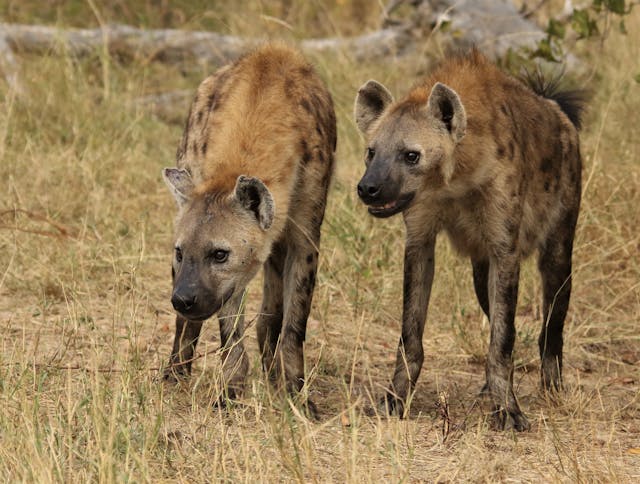
Hyena Attack
Hyenas are often portrayed as cowardly scavengers in movies and folklore, but in reality, they are powerful predators.
Known for their strong jaws and pack behavior, hyenas are formidable in the wild. If you ever find yourself in the unfortunate situation of a hyena attack, it’s crucial to know how to respond. Here’s a guide on what to do to increase your chances of survival during a hyena attack.
Stay Calm and Assess the Situation
The first thing to do is remain as calm as possible. Panic can cloud your judgment and lead to irrational actions that may provoke the hyena further. Take a deep breath and evaluate your surroundings.
- Are you alone or with a group? Hyenas are less likely to attack groups of people.
- How many hyenas are there? If it’s just one hyena, you stand a better chance of deterring it. However, a pack may be more dangerous.
- Is there a safe escape route? If you can slowly back away without turning your back, you may avoid an attack altogether.
Don’t Turn Your Back or Run
The natural instinct during a predator encounter is to run, but this can trigger the hyena’s chase reflex. Hyenas can run at speeds up to 37 mph (60 km/h), so you won’t outrun them. Running could turn a tense situation into a life-threatening one.
Instead, stand your ground and face the hyena directly. By facing it, you communicate that you’re not prey. Maintain eye contact and try to make yourself look bigger.
- Hold your arms out wide or lift any item you have, like a backpack, to appear larger and more intimidating.
- Do not crouch down or make yourself appear small, as this could signal vulnerability.
Make Noise and Act Aggressively
Hyenas are intelligent creatures, and while they’re bold, they’re not fearless. You can scare them off by making loud noises and acting aggressively. If the hyena is still approaching or showing signs of aggression (like snarling or circling), make yourself as unappealing as possible.
- Shout loudly, wave your arms, and stomp your feet.
- Throw objects like rocks or sticks if available. Aim for the head or snout, as this will likely deter the hyena.
Even though a hyena’s bite is powerful, they don’t typically attack humans unless provoked or starving, so acting aggressively can often discourage them.
Use a Stick or Weapon If Available
If the situation escalates, you may need to defend yourself physically. A sturdy stick, trekking pole, or any other item can be used as a weapon. Aim for sensitive areas like the nose, eyes, or head to fend off the hyena.
If you’re carrying pepper spray or any other deterrent, this would be the moment to use it. However, if you’re unarmed, your best bet is to continue shouting and throwing objects while backing away slowly.
Protect Your Neck and Head
In the unlikely event that the hyena attacks, protect your neck and head at all costs. Like most predators, hyenas aim for the throat to deliver a killing bite. If the animal lunges at you, try to block its attack with an arm or any available object.
If the hyena knocks you down:
- Curl into a fetal position to protect your vital organs.
- Cover your head and neck with your arms to shield yourself from the hyena’s powerful jaws.
Remember that fighting back is crucial. Hyenas are opportunistic predators; they often look for easy kills. Show them you’re not an easy target.
Retreat Slowly After Deterring the Hyena
If the hyena backs down, don’t turn your back on it immediately. Slowly retreat while maintaining eye contact and facing the animal. Continue making noise and waving your arms until you’re at a safe distance.
Once you’ve moved far enough away, find shelter or higher ground where the hyena cannot follow. If you’re in a safari park or other wildlife area, alert authorities as soon as possible.
Final Thoughts
Hyena attacks on humans are rare but not impossible, especially if you’re in areas where they are common. Knowing how to respond can be the difference between life and death.
Stay calm, avoid running, and use noise or objects to deter the animal. In the worst-case scenario, protect your vital areas and fight back. With the right strategy, you can minimize the risk of serious injury or escape the situation entirely.
Always remember that respect for wildlife and keeping a safe distance is the best way to avoid encounters like this in the first place.





